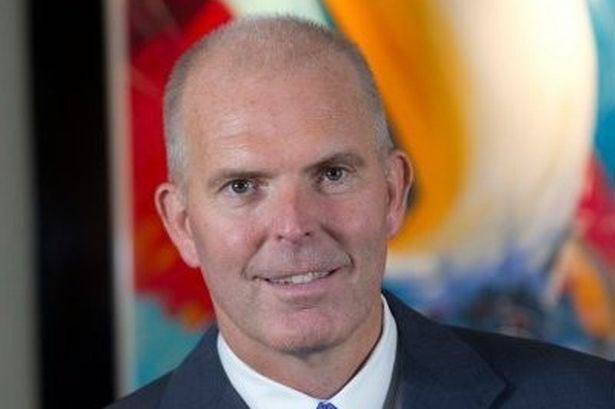Seeking, it seems, to mount a response to the increasing criticism being levelled at the global oil & gas sector in response to the linkage between fossil fuels and what the global environmental lobby says continues to be an alarmingly degraded environment, a high profile associate in SCF Partners, a US-based energy service company, had been seeking to mount a pushback against what he says has been the “demonizing of oil and gas,” contending that it could take up to three decades for alternatives to be developed to replace the product.
A report in last Tuesday’s Oil Industry News, a high profile oil & gas news source, quotes Colin Welch, described in the report as a North Sea Dealmaker, as saying that while hyped-up environmentalists continue to rail against oil and gas, the reality is that we will have no option but to continue to rely on those products as critical sources of energy for years to come.
The pronouncement at a Business Forum in Aberdeen, Scotland, earlier this week, could bring a modicum of comfort not just to the ‘heavy hitters’ with multi-billion dollar investments in the oil and search & recovery sector, but also to new entrants on the fossil fuel stage, like Guyana, which will be hoping that its own discovery of oil and hoped-for returns therefrom are not comprised by an intensified international environmental railing against the commodity.
The international partner with SCF, which provides equity capital and strategic growth assistance to energy service and equipment companies that operate throughout the world, told the Aberdeen Breakfast Meeting that it would take 20 to 30 years for renewables to be fully developed, according to the Oil Industry News. “Generally people think what we’re trying to do is trash oil and gas and simply just flick a switch and move to renewables,” Welch is quoted as saying. Oil and gas, according to Welch, has been under attack “not only by climate change activists but now by the media with a result that its fashionable for all sorts of people and organizations; banks, investment institutions and even the arts to turn away from oil and gas companies.”
Public discourse on oil & gas here in Guyana has touched on the subject of its likely environmental consequences mostly in the context of the likely consequences of oil spills though a handful of local environmental hardliners have used some fora to voice the decidedly minority view that, based on environmental grounds, Guyana should not exercise the option of exploiting its oil & gas resources. President David Granger, however, has articulated a Green State strategy which is defined by protection of the country’s natural eco-systems, its forests and its wildlife, even as it looks to use the revenues it will gain through its oil & gas future. The policy, some of its critics say, is sufficiently finely balanced to present a stern challenge to those who will have to implement it.
With the international banking system now coming under increasing pressure to cease lending to oil & gas investors, Welch, at the Aberdeen, asserted that the international oil industry had done “a bad job” of presenting “a thoughtful approach” to making a case for “a better way forward.” Welch wants the ‘heavy hitters’ who are facing the bulk of environmentalists’ opprobrium, to craft “a better way forward,” ahead of a major climate change forum scheduled for Glasgow later this year.
Welch contends that, in large measure, the fact that the global environmental lobby has gathered a considerable head of steam in recent years is attributable to a lack of reliable information with which to push back against the lobby. He argues that while “conventional wisdom is that cars are the poster child of environmental destruction,” the fact is that “livestock emissions make up between 15 to 18 per cent of total greenhouse emissions compared to 14 per cent for the transportation sector. Further, he contends that “while transportation creates CO2, livestock farming creates methane which is 23 times more potent towards warming the planet.”
Even as a newcomer to the global oil & gas ‘party,’ Guyana, given the considerable international media attention that its vast oil reserves have attracted, has already come under the international environmental radar. However, with national expectations having soared to giddying heights since the country’s first major oil find in 2015, the likelihood of the emergence of strong support for an environmental pushback against oil & gas is unlikely to secure a great deal of traction here.
As it stands the government asserts that even with the country’s major oil finds and ongoing exploration pursuits, its Green State Development Strategy remains underpinned by efforts to reduce the country’s dependence on fossil fuels and generating renewable energy from sources including biomass, hydro, solar and wind power. What a local critic has, however, described as an “unrealistic altruism” will have to confront the reality that removing Guyana from its present condition of underdevelopment can only be realised through the substantial revenues that the country can anticipate from oil.
Welch, who has emerged as a kind of one-man pushback against what he says has been the “bashing” of the oil & gas industry says, that while for many years the phenomenon of global warming had been “the elephant in the room” it had not until recently been taken very seriously and had only kicked into gear in 2019 following what he described as “the tsunami of pressure” that had emerged more recently.
Poor countries in Africa, particularly those currently involved in the development of their oil & gas industries are, for the most part, paying scant attention to the global oil & gas lobby, contending that theirs is a ‘bread and butter’ issue and that the timing of the mostly western environmental lobby clashed with the survival and development-related preoccupations of poor countries.






